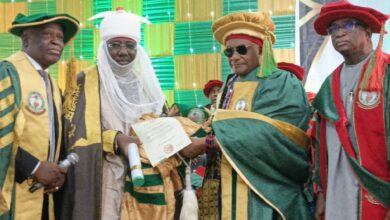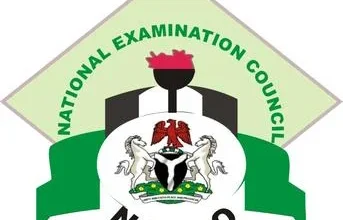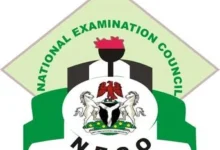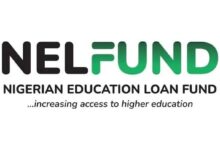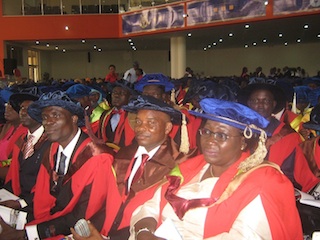
By Eze Onyekpere
In this season of the presentation of budget estimates by the executive and their consideration by the legislature, it is imperative to interrogate budgeting for education. Education is one of the building blocks of modern society and civilisation. The budget provides the opportunity for policy, plan and the budget to work in a continuum that moves resources towards the fulfillment of government’s core objectives in promoting development, economic growth, human rights and fundamental freedoms, etc.
This discourse is focused on the right to education, which is a human right in itself but also an empowering right that facilitates the enjoyment of other rights and provides the knowledge, orientation, ecosystem and ground rules for development to proceed without hindrance. The sum of N61.73 billion was voted for the capital component of education, whilst its recurrent vote is in the sum of N435.01 billion, bringing the total to N496.74 billion, which is 5.77 percent of the overall budget of N8.6 trillion. When the Universal Basic Education vote of N109 billion is added, the total figure increases to N605.795 billion, bringing it to a mere seven percent of the estimates. Is this sum sufficient for the federal education needs of Nigeria? Will it keep Nigeria within a reasonable distance of its national and international commitments, provided in various standards?
The United Nations Committee on Economic, Social and Cultural Rights had defined the irreducible minimums on the right to education. They are stated as availability, accessibility, acceptability and adaptability. Availability refers to functional programmes, schools, facilities, libraries, computers, information technology, qualified and competent teaching staff, etc. Accessibility includes issues of affordability (economic accessibility) of education programmes and schools, non-discrimination which makes education available to all, and physical accessibility at convenient geographical locations or through distance learning using ICT. Acceptability involves curricula and teaching methods being acceptable to the society – parents and students and being culturally adequate for the social milieu. Adaptability links education to development and its ability to adjust to solve societal problems, thereby becoming practical, relevant and functional.
Looking at these functional parametres of the right to education and the fact that the federal budget is just about $2 billion to cater for so many secondary and tertiary institutions, as well as augmenting basic education funding, a preliminary position emerges that the estimate is not enough. However, the poser as to mileage, knowledge and value derived from previous appropriations is a serious issue that needs interrogation. Essentially, while the resources may not be enough, have we applied the little resources in a value for money manner? Can we derive value equivalent to $2 billion, assuming the estimates are approved as they are by the legislature and fully funded by the executive?
In terms of availability, it makes no sense to continue to fund the building of new tertiary institutions when existing ones have not been utilised to their full capacity. What is imperative is to expand the carrying capacity of existing institutions, so that money appropriated and utilised can provide more value for the nation. Expansion of carrying capacity is the easiest way to expand access rather than building brand new schools with brand new bureaucracies. Why build new institutions when funding for existing ones are poor? Investments in expanding carrying capacities, distance learning, ICT, while maintaining quality assurance should be the norm.
What is the acceptability and quality of education delivered from the primary to the tertiary level in public schools? The controversy over the rudimentary test set by the Kaduna State Government for teachers in primary schools and which majority of them failed is a clear demonstration of the garbage in – garbage out concept. For a country that seeks education to improve knowledge and move the country up in the development ladder, we cannot afford poor quality tutoring because a pupil will not know more than what he has been taught by his teacher. Thus, similar tests to determine the suitability of teaching staff should be carried out across the three tiers of schooling. This should be followed up with investments in teacher training and constant retraining. Of course, the dead woods should be flushed out of the system.
University autonomy or that of any other tertiary institution should be properly conceptualised and interrogated, coupled with a democratisation of decision making in various tertiary institutions. University autonomy can no longer be accepted as an engine of fraud where school authorities become unaccountable to no one but their dead conscience, thereby depriving the system of value for money. The needs assessment report of Nigerian universities showed (and the issues still remain alive) that many tertiary institutions are over staffed with persons that add little or no value and this is highly demonstrable among the non-academic staff who sometimes outnumber the persons delivering knowledge. There is very poor accountability for non-federal allocation, being independent revenue raised from programmes run and services rendered by universities. A situation where universities are underfunded but any extra funds raised by universities are mismanaged by the leadership of the institutions is totally unacceptable and should not be allowed to continue. Therefore investments in proper oversight of these autonomous institutions, democratisation of decision making around capital projects and procurements is long overdue. Also, the Federal Government must ensure the enrolment of all tertiary institutions on the Integrated Personnel and Payroll System to guarantee a cleaner personnel and payroll process.
In terms of non-discrimination, the quota system of admission into federal tertiary institutions is overdue for scrapping. Allowing students who are not qualified (going by their very low scores) to gain admission into tertiary institutions at a time more qualified persons are denied admission is a disservice to functional education and the nation as a whole. The import is that the nation keeps producing half-baked graduates through a system of “let my people go”. We certify and certificate unsuitable persons with academic degrees and expect them to excel and become the authors of innovations. As a man sows shall he reap! To stop this will not involve any extra cost. All that is required is the political will.
Also, we must improve the contracting and procurement system across the education value chain. We must also begin to involve communities, especially in matters of basic education. A situation where fat contracts are awarded for simple supplies like school desks and chairs which could be produced at far cheaper costs by local artisans speaks of a huge disconnect between the people and their government. This needs to be checked in such a way that guarantees greater value for money in the system.
In conclusion, the education estimates may be low; but we can derive a value greater than previous years’ values if the system is reformed and more attention is paid to the details of budget implementation, value for more and transparency and accountability.


